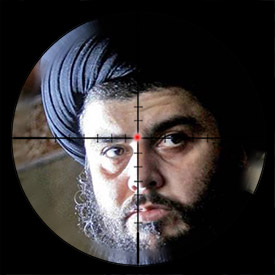Al Qaeda Online Lashes Out at Taliban
BY Herschel SmithA few days ago saw a strange dust-up between hardened Taliban fighters – the ones who drove the Soviet Union out of Afghanistan – and young Internet jihadists (although the Taliban would not have noticed or cared even if they did).
CAIRO, Egypt — Al Qaeda supporters on the Web have unleashed an unprecedented flood of criticism of Afghanistan’s Taliban, once seen by extremists as the model of an Islamic state.
Now extremists accuse the Taliban of straying from the path of global jihad after its leader Mullah Omar issued a statement saying he seeks good relations with the world and even sympathizes with Shiite Iran.
In February, the Taliban announced it wanted to maintain good and “legitimate” relations with neighboring countries. Then, last week online militants were outraged when the movement expressed solidarity with Iran, condemning the latest round of sanctions imposed on Tehran by the U.N. Security Council over its nuclear enrichment.
The Shiite Islamic state of Iran is viewed as anathema by the Sunni militants of the Al Qaeda and other extremist movements.
“This is the worst statement I have ever read … the disaster of defending the (Iranian) regime is on par with the Crusaders in Afghanistan and Iraq,” wrote poster Miskeen, whose name translates literally as “the wretched” and who is labeled as one of the more influential writers on an Al Qaeda linked Web site …
“The Taliban seeks to be a respected political movement that can at the same time govern Afghanistan and be at limited peace with its neighbors,” said Rita Katz, the director of the Washington-based SITE Intelligence Group which monitors militant Web traffic.
But she cautioned that the “Taliban’s surprising call to support Iran in the face of new U.N. sanctions does not mean that the group is suddenly offering unequivocal support to Iran,” though it shows readiness to coexist with the neighbor.
Cairo-based expert on Islamic movements Diaa Rashwan linked the Taliban’s quest for international legitimacy to possible future negotiations with the Afghan government.
“Mullah Omar’s statement about good relations are in response to accusations from the West that the Taliban is radical and does not accept dialogue or negotiations with others,” he said.
Afghan President Hamid Karzai said in September he was ready to negotiate with the Taliban, including Mullah Omar himself, to put an end to the insurgency, while U.S. ambassador to Afghanistan William Wood said in December he would support reconciliation talks, with some conditions.
“The only problem about an eventual compromise with the Taliban is the fate of Al Qaeda, whether it will be expelled from Afghanistan or commit itself to the Afghan government,” Rashwan said.
The Afghan Taliban have always been nationalistic and focused primarily on Afghanistan. We covered the recent somewhat amicable split between the Afghan Taliban and Baitullah Mehsud’s Pakistani Taliban, with Mehsud focused not only on the overthrow of Pakistan’s regime, but on global democracy as well.
“We will teach him [Musharraf] a lesson that will be recorded in the pages of history in letters of gold. The crimes of these murderers, who were acting at Bush’s command, are unforgivable. Soon, we will take vengeance upon them for destroying the mosques. The pure land of Pakistan does not tolerate traitors. They must flee to America and live there. Here, Musharraf will live to regret his injustice towards the students of the Red Mosque. Allah willing, Musharraf will suffer great pain, along with all his aides. The Muslims will never forgive Musharraf for the sin he committed. We want to eradicate Britain and America, and to shatter the arrogance and tyranny of the infidels. We pray that Allah will enable us to destroy the White House, New York, and London.”
Pakistan is seeing and has seen since 2007 an influx of global jihadists into the NWFP and FATA areas of Pakistan, so there is no paucity of international fighters who will participate in a global war. The so-called “nationalistic” tendencies of the Afghan Taliban are just that – political machinations intended to place them in the best possible position to regain power in the area. They haven’t change their core values any more than al Qaeda has.
The picture of reactionary boy-jihadists and computer jocks presuming to chastise hard core Afghan Taliban would otherwise be humorous if not for the fact that these forums and chat rooms are recruiting grounds for future jihadists. In case anyone doubts the ongoing threat of a transnational insurgency, this incident should remind us all just what General Abizaid intended when he coined the phrase “the long war.”




